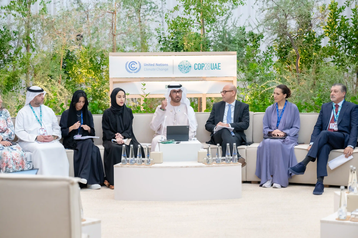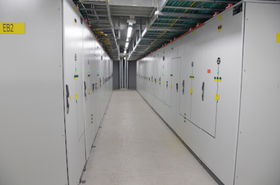At the UN's COP28 climate summit in Dubai, the International Atomic Energy Agency (IAEA) and the US government will argue for an increased role for nuclear power in the transition away from fossil fuels.
The IAEA's Atoms4Climate pavilion at the summit, which runs from November 30 to December 12 in Dubai, will host events arguing for the value of low-carbon nuclear power in securing energy, food, and water.
John Kerry, the US government's climate envoy is expected to unveil a plan to coordinate global efforts to develop fusion energy, according to multiple reports. Fusion could generate power without many of the drawbacks of current fission-based reactors but is still a long way from being commercially practicable.
"I will have much more to say on the United States’ vision for international partnerships for an inclusive fusion energy future at COP28," Kerry said in a statement on X, formerly Twitter, after a visit to MIT fusion spin-out Commonwealth Fusion Systems in Massachusetts.
The US signed an agreement with the UK to jointly work on fusion on November 8.
Promoting conventional fission energy programs, IAEA Director General Rafael Mariano Grossi said: “For the first time in the history of COP, nuclear countries will be able to say yes, we are here, yes, nuclear energy is part of the solution for this global climate crisis that we have." Grossi will be making a live-streamed address on Friday, December 1 at 12:00 GMT.
Grossi will argue that current nuclear deployments must be sped up to meet net-zero targets. Along with French President Emmanuel Macron and Belgian Prime Minister Alexander De Croo, he will announce a nuclear energy summit to be held in Brussels next year.
COP28 is the first "global stocktake" on progress towards meeting the goals of the Paris Agreement to limit carbon emissions. This is expected to make a dismal reading, as progress toward net-zero is too slow. Carbon emissions are still growing, and the UN says that "commitments made by governments to date fall far short of what is required" to reach net zero by 2050 and limit global warming to 1.5°C.
"Nuclear power, which accounts for about 10 percent of global electricity generation and provides about one-quarter of the world’s low carbon electricity, has a key role to play in a net zero future," says the IAEA. "Nuclear power offers affordability, resilience and security of energy supply and can be used alongside renewables to achieve net zero."
In a fusion experiment last year, Lawrence Livermore Lab achieved "ignition," where a fusion reaction briefly gave out more energy than was put into it by a laser. However, the energy used to create the laser beam vastly outweighed the energy output, and fusion experiments still struggle with containing the high-energy plasma required to generate energy and convert that energy into electricity.
Meanwhile, the traditional oil industries will have a powerful voice at COP28, where the conference president Sultan Al Jaber, who is also head of Abu Dhabi's National Oil Company (ADNOC), was revealed by the BBC to be planning to strike oil deals at the event, despite the UN's clear message that oil and gas development must cease.




